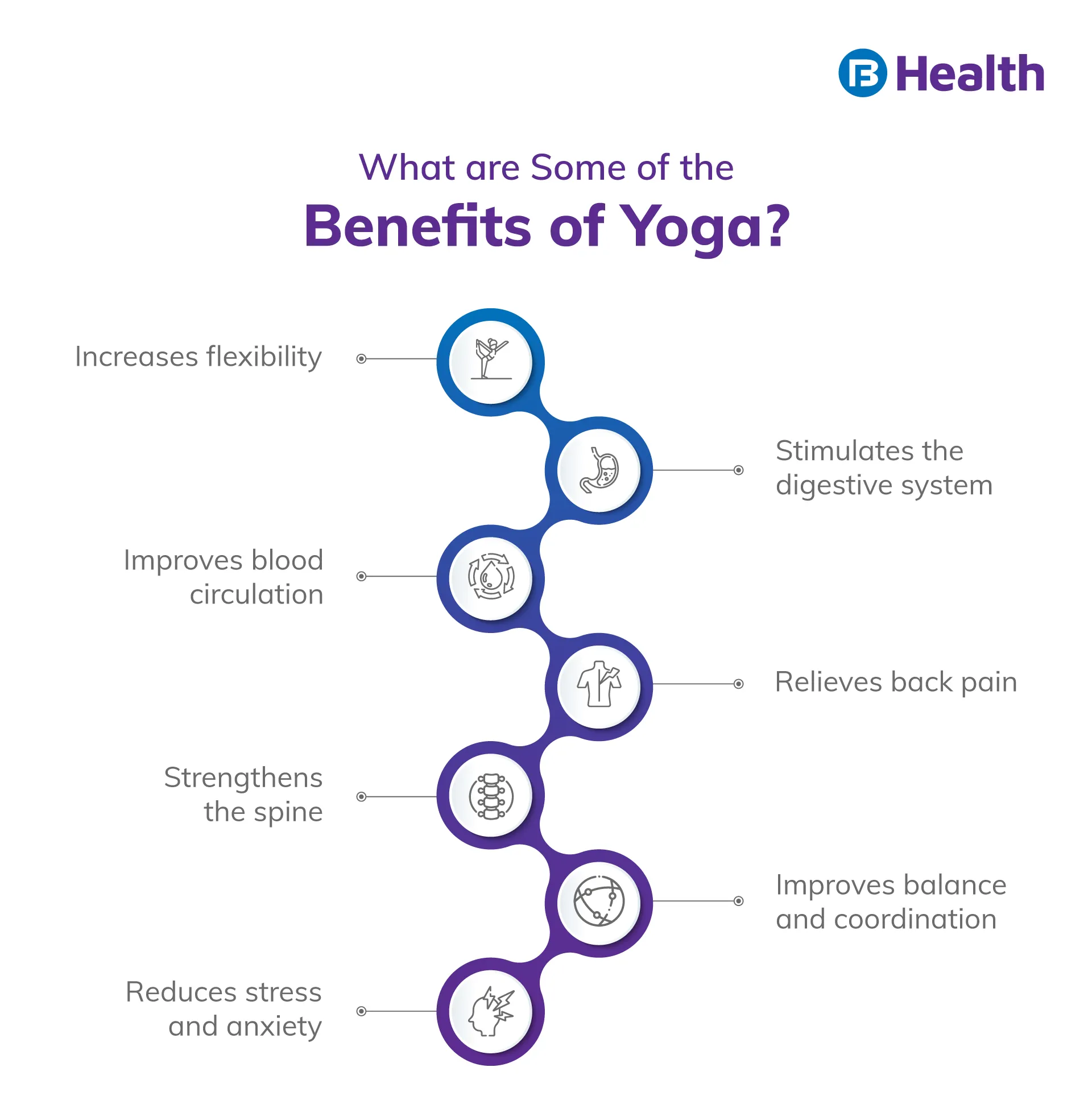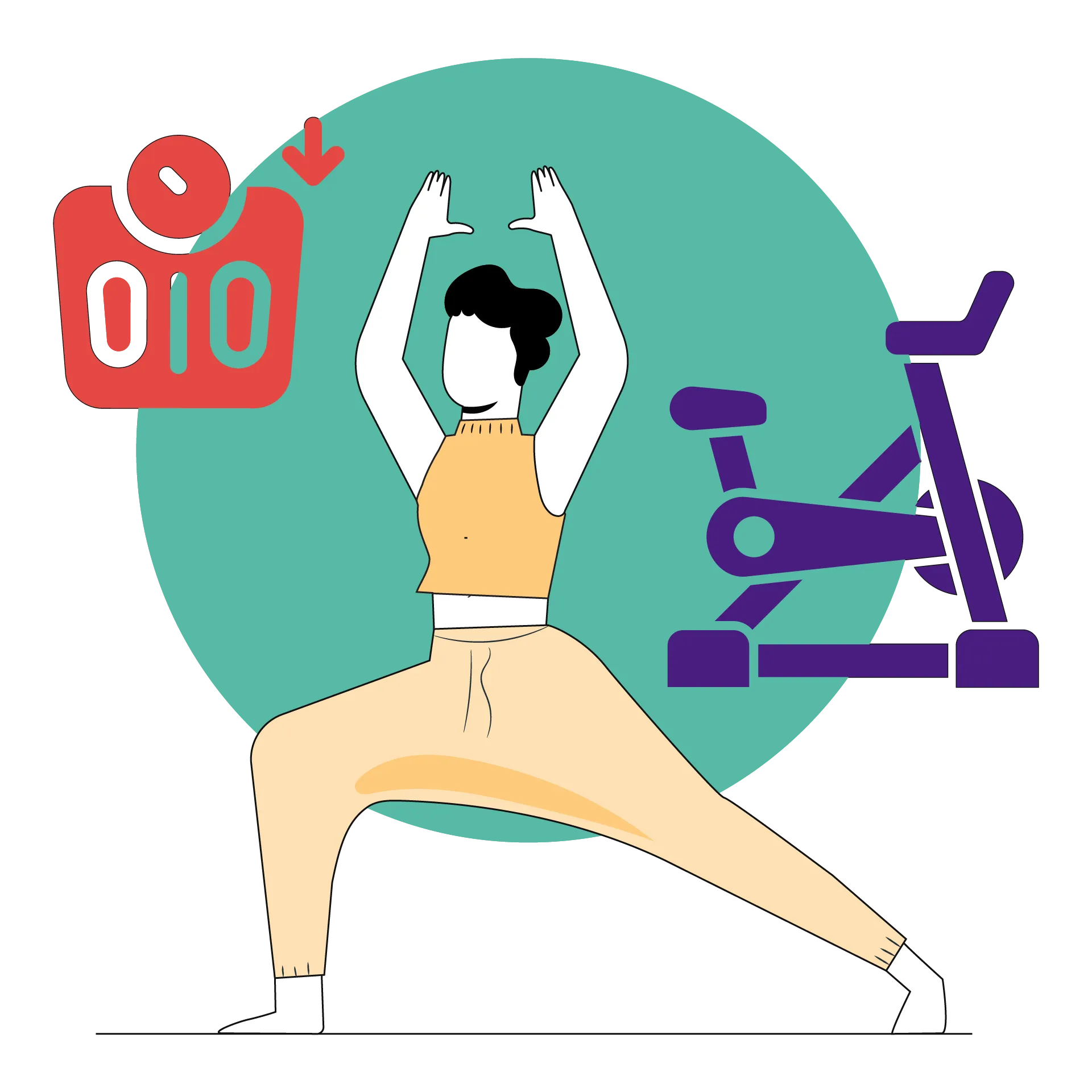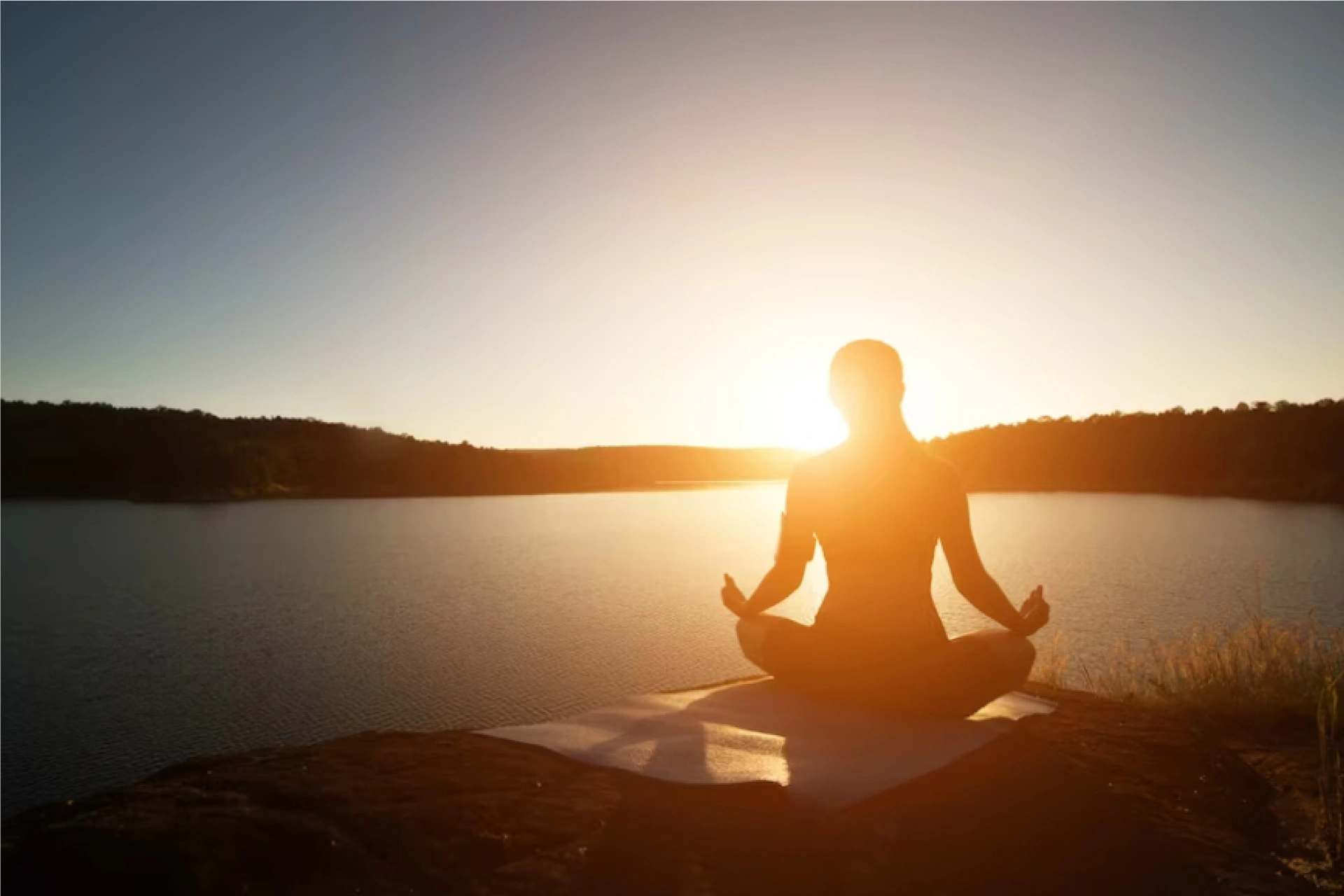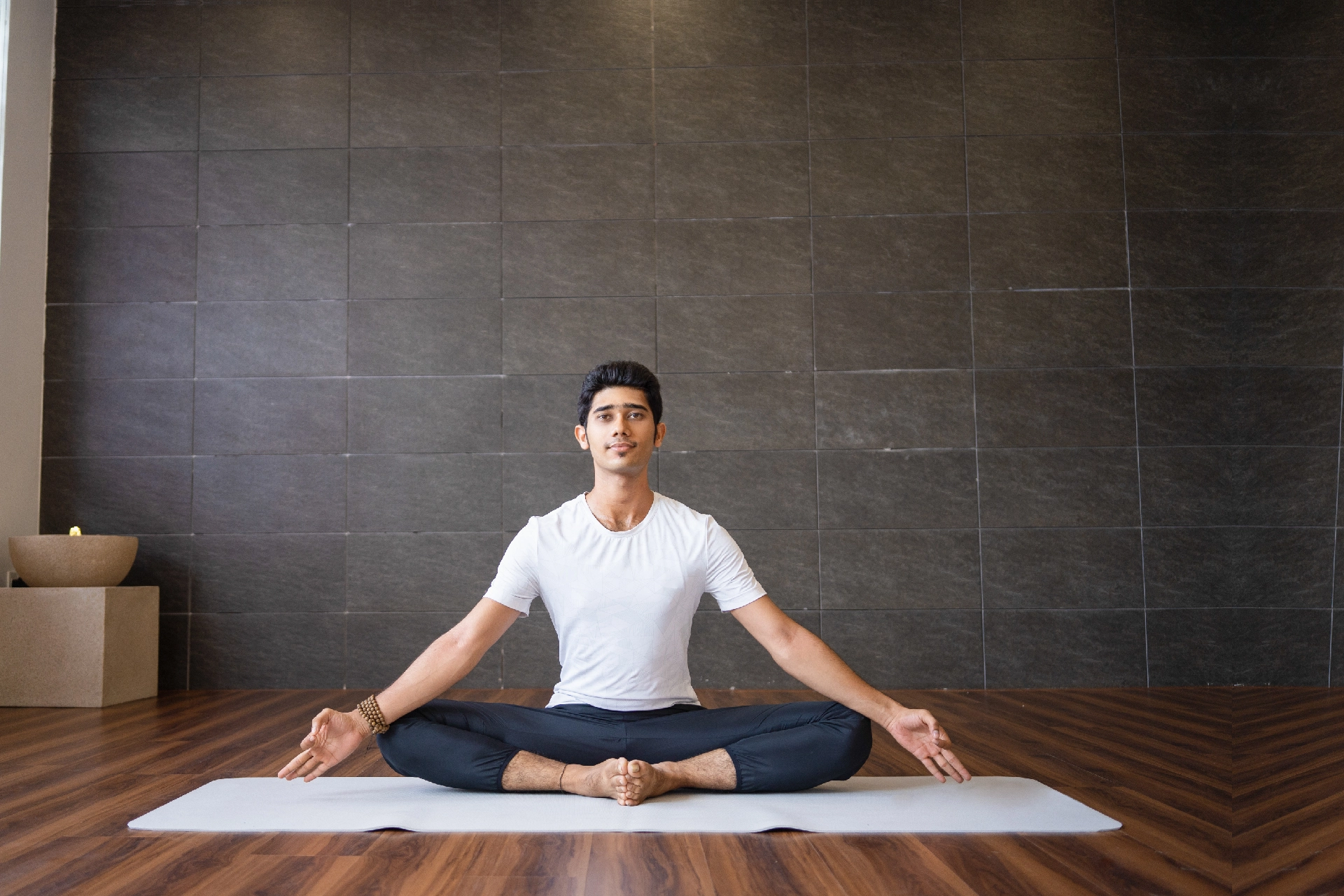Physiotherapist | 8 min read
Best Yoga Poses for Weight Loss With Steps and Benefits
Medically reviewed by
Table of Content
Synopsis
Yoga is a great way to improve your physical and mental health, but it can also be helpful if you’re trying to lose weight. While many yoga poses can help you burn calories and shed a few pounds, some are more effective than others.
Key Takeaways
- Plank Pose Chaturanga Dandasana is one of the best yoga for weight loss and that also strengthens the arms and core
- Virabhadrasana, or Warrior Pose, is a standing yoga for weight loss that offers a host of benefits for both the body
- Trikonasana, or the Triangle Pose, is a standing yoga for weight loss commonly used in sun salutations
Yoga for weight loss is an ancient practice that originated in India. It is a physical and mental exercise system that aims to promote health and well-being. There are many different types of yoga, but all forms of yoga for weight loss share some common features. Yoga for weight loss involves the practice of physical postures (asanas), breathing exercises (pranayama), and meditation (dhyana). These three components work together to improve physical and mental health. Yoga for weight loss is beneficial for physical health in many ways. It can help to improve flexibility, reduce pain, increase strength and endurance, and improve respiratory function. Yoga has also been beneficial for mental health - reducing stress, anxiety, and depression. However, it is essential to eat healthily as well. You can try a weight loss meal in combination with weight loss yoga.
Yoga Poses for Weight Loss
1. Chaturanga Dandasana - Plank Pose
Chaturanga Dandasana is one of the best yoga asanas for weight loss. It is a yoga pose that strengthens the arms and core and is often called the 'plank pose' because it is similar to the exercise used in other fitness disciplines.
Steps to Perform Chaturanga Dandasana:
- Start in plank pose with your hands and feet shoulder-width apart
- Lower your body to the mat, keeping your elbows close to your sides
- Stop when your arms are at a 90-degree angle and your body is straight from your head to your toes
- Hold the pose for a few breaths, then return to the plank pose and repeat

Benefits of Chaturanga Dandasana
There are many benefits to practicing Plank Pose regularly. Here are a few:
- Strengthened arms, shoulders, and core muscles
- Improved balance and coordination
- Increased flexibility
- Improved circulation
- Reduced stress and anxiety
Precautions of Chaturanga Dandasana
Here are some things to keep in mind when practicing chaturanga dandasana:
- Keep your core engaged throughout the pose, as it will help you maintain good form and prevent injuries
- Don't let your elbows collapse inward, as it can stress your joints and muscles unnecessarily.
- Be sure to keep your breath steady and controlled. Doing so will help you stay focused and avoid any dizziness or lightheadedness
Tips for Chaturanga Dandasana
First, ensure that you're using your arms to support your body weight, not your neck and shoulders. Second, keep your core engaged so you don't collapse in the middle. And finally, practice, practice, practice! The more you do this pose, the stronger you'll become and the easier it will be to nail.
Additional Read: Yoga for Cholesterol Control2. Virabhadrasana - Warrior Pose
Virabhadrasana is a Sanskrit word that means "warrior pose." Warrior pose is a standing yoga for weight loss pose that builds strength and stamina. It also helps to improve balance and flexibility and is one of the best yoga for weight loss poses.
Steps To Do Virabhadrasana Pose
Start standing with your feet about hip-width apart to do the warrior pose. Then, step your left foot back about four feet and turn your left foot to be parallel to your right foot. Next, bend your right knee so that your right thigh is parallel to the floor and your right shin is perpendicular to the floor. Now, bring your arms to the sides and bring your palms together in front of your chest. Hold the pose for about 30 seconds and then repeat on the other side.
Benefits
Virabhadrasana, or Warrior Pose, is a standing yoga for weight loss pose that offers a host of benefits for both the body and mind. This pose helps to improve balance and stability while also lengthening and strengthening the muscles of the legs, back, and shoulders. It can also help to increase energy and stamina while promoting a feeling of calm and focus. In addition, Warrior Pose is known to help improve circulation and digestive function.
Additional Read: Top Yoga Poses to Improve Your Flexibility
Precautions
First, warm up your body before doing the Warrior Pose. A few minutes of light stretching will help to prepare your body for this yoga for weight loss. Second, be careful not to overstretch your body. The Warrior Pose can be challenging, but you should only go as far as your body can comfortably handle. Third, be sure to listen to your body. If you feel any pain or discomfort, stop immediately and consult a doctor if necessary.
Tips
While Virabhadrasana is generally a safe pose, there are a few things to keep in mind to avoid injury.
- First, be sure to warm up before attempting the pose
- Second, be careful not to overstretch
- Third, listen to your body and move slowly and mindfully
3. Trikonasana Triangle Pose
Trikonasana, or the Triangle Pose, is a standing yoga for weight loss pose commonly used in sun salutations. The pose gets its name from the three points of the body that it forms - the head, the outstretched hand, and the raised foot. The Triangle Pose is a very grounding pose, often used to bring balance and stability to the body. This is one of the most effective yoga exercises for weight loss and yoga for back pain.
Steps To Do Trikonasana Triangle Pose
- Bring your feet together and start in the mountain pose
- Step your left foot back about 4 feet, and angle it out to the left about 45 degrees
- Raise your arms to shoulder height and point your left fingertips out to the left
- Turn your right toes forward and your left toes out to the left
- Bend your right knee and lower your hips toward the floor
- As you exhale, straighten your right leg and bring your left hand to your right ankle
- Bring your right hand to the floor inside your right foot
- Press your palms evenly to the floor and lengthen your spine
- Hold 5-8 breaths, then repeat on the other side
Benefits
Here are just some of the benefits that you can experience from practicing the Triangle Pose:
- Improves blood circulation
- Increases flexibility
- Strengthens the spine
- Reduces stress and anxiety
- Stimulates the digestive system
- Relieves back pain
- Improves balance and coordination
Precautions
When doing Trikonasana, or any yoga for weight loss pose, it is essential to be aware of your body and breath. Make sure to file your nails so they are not sharp and cut them if they are. Also, be mindful of your breath, and do not hold it while in the pose. Be careful not to overstretch. If you feel pain, stop and come out of the pose.
Tips
If you're looking to add Trikonasana to your yoga for weight loss practice, follow these tips:
- Start in Mountain Pose with your feet together. Step your left foot back about 3-4 feet, then turn your left toes out to a 45-degree angle
- Align your right heel with the left arch of your foot
- Extend your arms to the sides, bend your right elbow, and bring your right hand down to your right hip
4. Adho Mukha Svanasana
Adho Mukha Svanasana, also known as Downward Facing Dog, is a fundamental posture in yoga for weight loss. It is a deep stretch for the hamstrings, calves, and Achilles tendon and strengthens the shoulders, arms, and wrists. These asanas for weight loss are recommended by many as they are proven to be effective.
Steps To Do Adho Mukha Svanasana
- Start in Tadasana or jump your feet back to be approximately 4 to 6 feet apart
- Point your toes forward and place your heels slightly inward
- Bend your knees and lower your hips toward the floor
- Place your hands on the floor. The distance between them should be equal to your shoulder width
- As you exhale, press your hands on the floor and lift your hips toward the ceiling
- Walk your hands forward until your body forms an inverted "V" shape
- Keep your feet and legs together and your hips and thighs firm
- Press your shoulder blades down your back and bring your heels toward the floor
- Hold the pose for 30 seconds to 1 minute
Benefits
There are many benefits to practicing Adho Mukha Svanasana, or Downward Facing Dog Pose. This yoga for weight loss pose can help to improve your flexibility, strengthen your muscles, and calm your mind. Downward Facing Dog is also a great way to stretch your back and hamstrings and can even help relieve stress, tension, and headaches. If you are new to yoga for weight loss, Adho Mukha Svanasana is a great pose to start with.
Additional Read: Easy Yoga Poses and Tips To Build Your StrengthPrecautions
There are a few things to keep in mind while performing Adho Mukha Svanasana, or Downward Facing Dog Pose. First, be sure to warm up your body with some Sun Salutations or another form of gentle stretching before attempting this pose. Second, if you have any wrist or shoulder injuries, it's best to avoid this pose or modify it by placing your hands on blocks.
Tips
When performing Adho Mukha Svanasana, it is important to keep the following tips in mind:
- Keep the feet hip-width apart and the legs straight
- Release the pressure into the hands and lift the hips up and back
- Keep the core engaged and the breath steady
- Hold the pose for 3-5 breaths, and then release
Many yoga for weight loss poses can help with weight loss. The most effective poses challenge the body and raise the heart rate. Poses that work the arms, legs, and core are especially good for burning calories and losing weight.
Be sure to head to Bajaj Finserv Health to check out more articles on yoga or to choose to get an online doctor consultation for you.
References
Disclaimer
Please note that this article is solely meant for informational purposes and Bajaj Finserv Health Limited (“BFHL”) does not shoulder any responsibility of the views/advice/information expressed/given by the writer/reviewer/originator. This article should not be considered as a substitute for any medical advice, diagnosis or treatment. Always consult with your trusted physician/qualified healthcare professional to evaluate your medical condition. The above article has been reviewed by a qualified doctor and BFHL is not responsible for any damages for any information or services provided by any third party.





